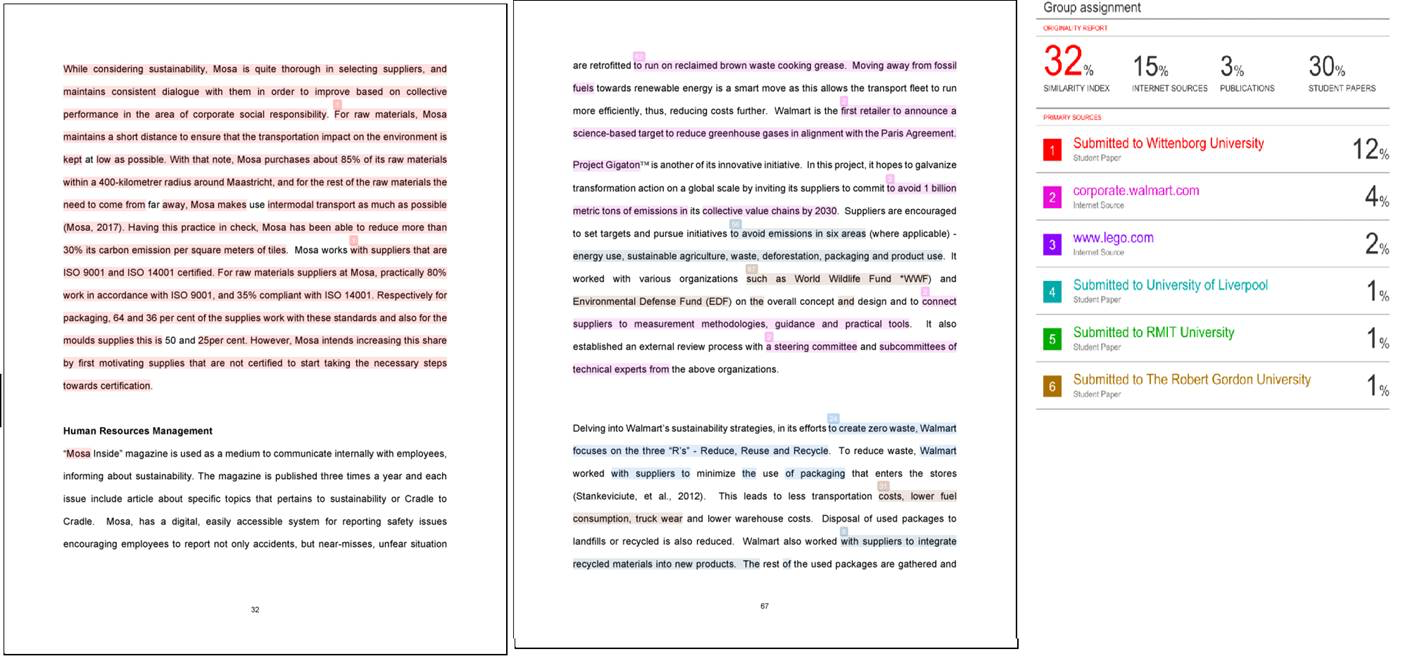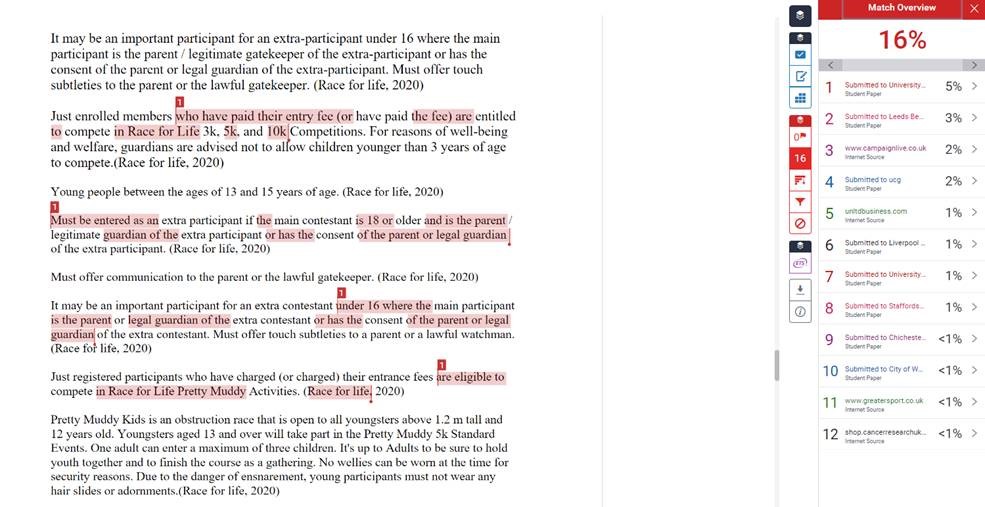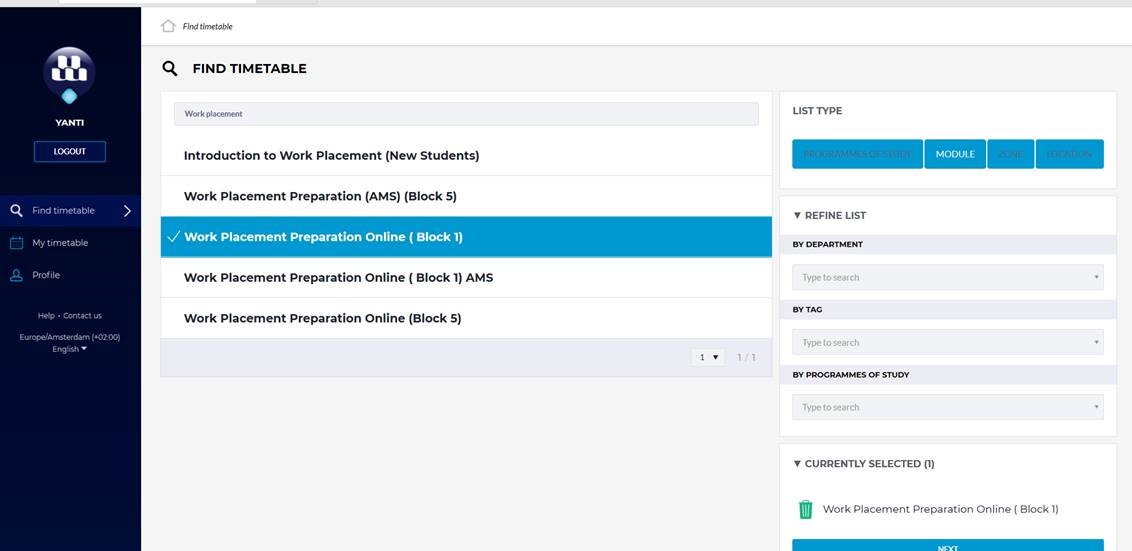Friday, 19 April 2024, 6:11 AM
Site: Welcome to Wittenborg Online
Module: Welcome to Wittenborg Online (Wittenborg Online)
Glossary: FAQ Studying @ Wittenborg
Hanna Abdelwahab Hanna
Question: (Last edited: Wednesday, 5 August 2020, 12:13 PM)MVV: What is MVV (Regular Provisional Residence Permit) | ||
|---|---|---|
| Answer: If you want to stay in the Netherlands for longer than 90 days, you may need a residence permit (Dutch ID card for non Dutch residence). But before you can travel to the Netherlands, you will have to apply for a long-stay visa. This visa is called an authorisation for temporary stay (or the MVV). The MVV is a special entrance visa. Your nationality defines whether you have to apply for an MVV or not. For some nationalities and in some situations, an exemption applies and you do not need an MVV. If you want to apply for an MVV, you need a purpose of stay in the Netherlands. This could be stay with a family member, study or work. Each purpose of stay has specific requirements you have to meet. There are also a number of general conditions that apply to everyone, regardless of the purpose of the stay. Usually it is the sponsor in the Netherlands who applies for the MVV. The sponsor is the person you are going to stay with in the Netherlands (example spouse) or the organisation that arranges your stay (e.g. a university or employer). The sponsor applies for the MVV at the Immigration and Naturalisation Service (IND) which is basically the Dutch Immigration Authorities. For non-EU students, your MVV and residence permit will be applied by the university on your behalf. Once it is approved, you will receive a letter from the university informing you to make an appointment at the Dutch embassy in your country to have your passport stamped with the MVV visa sticker. Once the visa is stamped in your passport, you can travel to the Netherlands. Once you arrive in the Netherlands, the IND will inform the university when your residence permit can be collected. This residence permit is a study residence permit with an expiry date. For more information on the MVV and the conditions that apply, please visit the IND website at https://ind.nl/en/Pages/mvv.aspx. | ||
Question: (Last edited: Wednesday, 5 August 2020, 12:56 PM)MVV: Why is my MVV visa only valid for 90 days? | ||
|---|---|---|
| Answer: The MVV is a special entrance visa which is needed by a non EU/EEA resident to enter the Netherlands. It is valid for 90 days and will only be issued in combination with a residence permit. Once your application for an MVV and residence permit is approved, the IND (Dutch Immigration Authority) will inform the Dutch embassy or consulate in your home country. You will then have to arrange an appointment with the Dutch embassy or consulate general to have your passport stamped with the MVV visa and also to provide your biometric information (fingerprints, passport photo and signature) in order for the IND to make your residence permit. The 90 days cap is to allow time for you to make an appointment at the Dutch embassy (which normally can take more than 2 weeks) and prepare for your departure to the Netherlands. You have to travel to the Netherlands within the 90 days. Once you arrive in the Netherlands, you will have to wait for an additional 2 weeks before your residence permit can be collected. It is important that you ensure your MVV has not expired before you receive your residence permit. Take note that you cannot request for an extension of the 90 days. If your MVV visa has expired (the 90 days is over), your sponsor will have to submit for a new application and you will have to pay for this new application. COVID-19 situation: In view of the COVID-19 situation, new rules have been set by the IND. You can check for additional information from the IND website at https://ind.nl/en/Pages/Coronavirus.aspx | ||
Question: (Last edited: Friday, 26 August 2022, 9:16 PM)Oral Defence: Can students defend/present the Graduation Assignment/Final Project (GA/FP) online? | ||
|---|---|---|
| Answer: As all educational activities are now conducted as on-campus activities, we would like to highlight that students must be physically present on campus to defend the Graduation Assignment and Final Project (GA/FP) in addition to the presentations of In-company training and Work Placement modules. Wittenborg is an experiential institute. At Wittenborg, students sign up for a degree programme with lessons, projects and other educational activities delivered on-campus on a full-time basis. Therefore, all students are expected to be physically present and effectively participate in the classes in order to fulfil all study requirements. If you have to travel outside the Netherlands for any extended period for mitigating reasons (e.g. medical), please note that you must inform your Process Tutor, Academic Supervisor & the examination department (examresults@wittenborg.eu) at least one block in advance of your Graduation Assignment and Final Project modules. | ||
Question: (Last edited: Wednesday, 15 July 2020, 5:12 PM)Orientation Year: Can I use my orientation year/search year residence permit to work outside the Netherlands? | ||
|---|---|---|
| Answer: No, you can only use your orientation year residence permit to work in the Netherlands. The Dutch residence permit for the orientation year (oriëntatiejaar or zoekjaar - search year) does not give you the right to work in other countries, even in the Schengen area. If you want to work in another (Schengen member) state, you will have to apply for a residence permit and/or a work permit in that state. Take note that your stay in other Schengen member states is limited to a maximum of 90 days within a period of 180 days. If you intend to stay in another Schengen member state longer, you must comply with the immigration regulations of that country. Take note also that if you do not have and keep your main residence in the Netherlands during the orientation year, your residence permit can be revoked. Having main residence in the Netherlands is a key requirement to retain a Dutch residence permit. | ||
Question: (Last edited: Tuesday, 8 June 2021, 10:59 AM)Orientation Year: I am graduating soon. How can I apply for a search year (zoekjaar) visa? | ||
|---|---|---|
| Answer: If you have successfully completed your studies and like to stay in the Netherlands to find a job or start up your own company, you have to apply for the search year (Zoekjaar) visa. Once you have passed your Graduation Assignment (GA) Oral Defence, Wittenborg University of Applied Sciences (WUAS) will start your de-registration process and inform the Immigration and Naturalisation Service (IND) as we are legally bound to do so within 4 weeks from the Oral Defence day. The procedure to withdraw the permit will be commenced by IND accordingly. During this 4-week period, WUAS will prepare and sign your 'Declaration of Study Completion'. You will require this document to apply for your Zoekjaar on the IND site (Alternatively, you can use the copy of your Graduation Diploma if you have received it.) If you would like this Declaration, please fill out Declaration of Study Completion Form and we will send you this document by e-mail within two weeks after your presentation. IND grants the graduates three months to apply for Zoekjaar after graduation date ( i.e. Oral Defence date for WUAS students). If the Zoekjaar Application is not received by the IND within three months, then you will face a residence gap. Two exceptions should be considered in this regard to avoid the residence gap:
More information and the application procedures can be found at: FAQ about the topic on IND’s website can be found at https://ind.nl/en/Documents/FAQ_orientation_year_highly_educated_persons.pdf | ||
Question: (Last edited: Friday, 26 August 2022, 9:20 PM)Plagiarism: I am still unsure about plagiarism. Is there a guide for me? | ||
|---|---|---|
| Answer: To know more about plagiarism and academic misconduct, here are some suggestions: 1) Refer to the EEG part 5 2) Refer to these guides for students: (video) (Pdf) 3) Check out our FAQ on plagiarism-related questions via FAQ Studying @ Wittenborg 4) Attend the Academic English Workshop (AE) which is held during the Introduction Week in every block. The timetable is available via https://timetable.wittenborg.eu/ or you can refer to WUAS general year planning via 2021-2022 General Year Planning (wittenborg.eu) 5) Consult your Academic English teacher | ||
Question: (Last edited: Wednesday, 8 November 2023, 2:27 PM)Plagiarism/Turnitin Similarity Score: Does Turnitin show percentage of similarity and plagiarism? | ||
|---|---|---|
| Answer: When a paper is submitted via Turnitin, an overall percentage of similarity or originality score (with colour code) is shown (see picture below). The similarity score is just a percentage of text in the student’s paper that matches sources in the Turnitin database. Turnitin highlights the text in the student’s paper that is similar to or matches against another source. The picture below shows a Turnitin Originality Report in the Document Viewer window. On the right of the image, you will see a numbered list of matched sources. Each of these is allocated a colour and number and these correspond to the number and colour in the student’s text. Highlighted text may indicate plagiarism and it will be checked by the module teacher. Take note that a high percentage does not mean there is definite plagiarism. There may be cases where the high percentage is due to appendices which are necessary for submission for example the financial statement of a company which is the case study of the assignment. High similarity percentage may occur if a student copies too much text (exact words and sentences) from another source(s) without paraphrasing. This is called direct copying or verbatim type of plagiarism. See the red highlighted text numbered 1 in the picture. High similarity percentage may also occur if there is poor paraphrasing of text from another source(s) by student – see the pink highlighted text numbered 2. Both these high percentages are grounds for further investigation by the teacher on the student’s paper. Likewise, a low similarity percentage does not mean there is no plagiarism. It is best that you check your paper thoroughly after submission to ensure that there are not many highlighted text.
Source: www.wittenborg-online.com | ||
Question: (Last edited: Thursday, 11 February 2021, 1:46 PM)Plagiarism/Turnitin Similarity Score: How will I know what changes I need to make after I viewed the Turnitin Originality Report and how can I lower the similarity score? | ||
|---|---|---|
| Answer: Check the ‘Match Overview’ of the Originality Report (picture shown below) and take note of sources which have more than 1% similarity. Make changes to your text, not only to lower your overall similarity score but also to lower the similarity of each source higher than 1%. Here are some suggestions on what you can do: 1) Remove or change strings of commonly used phrases or text (5-8 words) such as 'Sustainability is important for the environment', as such phrase is very common in the internet and will show up in the similarity score. 2) Put all exact words in quotation marks, or in an indented paragraph. Then use the filter key in Turnitin and exclude 'quotes' and 'bibliography'. (Refer to this link on how to use the filter function: https://help.turnitin.com/ithenticate/ithenticate-user/the-similarity-report/filters-and-exclusions.htm). However, a better way is to paraphrase everything in your own words, even if it is a definition, and provide the references. Make sure you don't just find synonyms of words or change few words here and there because Turnitin can detect similarity in sentences too. 3) Check the individual percentages of the sources. If the percentage for one or more of the sources are 2% or more (see the example in the picture below), reduce or paraphrase the text from that source. For example, referring to the picture below, reduce text from Sources no. 1, 2, 3 and 4. These are some ways in which you can reduce the similarity score, but take note that a low similarity score does not definitely mean that your assignment is plagiarism-free. In addition to the above, you have to ensure that you have not committed any of the possible cases of plagiarism. For this, you have to check the EEG Part 5b. You can also refer to the attached document 'A Guide to Plagiarism - for students' on how to avoid plagiarism.
| ||
Question: (Last edited: Wednesday, 6 April 2022, 12:46 PM)Project Week: How many Project Weeks does Master's students have to complete and when can they attend? | ||
|---|---|---|
| Answer: Master's students are required to complete a total of three (3) Project Weeks (PW) in order to receive a pass in this module. The PW topic of blocks 1 & 5 are similar, while the PW topic of blocks 2 & 6 are similar and the PW topic of blocks 3 & 7 are similar. Students must ensure that the three PWs taken are not a duplicate of another. For example, once a student has a Pass for PW block 1, they can no longer take the PW in block 5 because the topic is similar. If taken, the mark will not be registered in Osiris. Only ONE PW can be taken per block. For example if students join the campus-wide Bachelor's PW like the Climate Change PW, students will not be allowed to join the Master's PW for that block. | ||
Question: (Last edited: Tuesday, 4 August 2020, 12:53 PM)Registration Letter: How can I get my registration letter? | ||
|---|---|---|
| Answer: If you need your registration letter, please send an email to registrar@wittenborg.eu with your full name and student number. We will send it to you after checking your educational status and financial requirements. | ||
Question: (Last edited: Monday, 22 January 2024, 10:54 AM)Retake: When can I retake my failed exams? | ||
|---|---|---|
| Answer: Bachelor EEG Part 5 EXAM WEEKS AND RETAKES Note: Re-take exam weeks offer exams from the 3 blocks up to and including the immediately preceding block. i.e. (Retake-Weeks winter) are offered for blocks May, Sep and Oct and while (Retake Weeks-summer) are offered for blocks Dec, Feb and Apr. The exception to this is Phase 3 students, who have failed the exam in block 3 can retake the exam at the regular exam in block May (never in Retake Weeks Summer) and who have failed the exam in block May can retake the exam at the regular block in block Dec (never in Retake Weeks Winter). Master (incl. Pre-master) EEG Part 5 EXAM WEEKS AND RETAKES Note: Retake exam weeks offer exams from the 3 blocks up to and including the immediately preceding block. i.e. (Retake Weeks-Winter) are offered for blocks May, Sep and Oct and while (Retake Weeks-Summer) are offered for blocks Dec, Feb & Apr. The exception to this is who have failed the exam in block Dec can retake the exam at the regular exam in block May (never in Retake Weeks-Summer) and who have failed the exam in block May can retake the exam at the regular block in block Dec (never in retake Weeks-Winter). Retakes can only be done when a student has attempted the normal exam (1st attempt). | ||
Question: (Last edited: Wednesday, 16 September 2020, 7:51 PM)Tuition Fee: Do I have to pay full tuition fee to Wittenborg until block 8 if I am following single degree Brighton or Double degree Brighton? | ||
|---|---|---|
| Answer: If you are a double degree student and has just started the double degree programme, you will need at least a full year to graduate. This is because the modules from Brighton are spread across the year, and Brighton does not work with the block system, so you cannot graduate earlier. Even if your classes end in June and you have handed in your thesis, you will still be registered as a student. You will officially graduate only when all the results are published, which will be in July/August. Therefore you will be invoiced until block 8. If you are following a single degree Brighton programme, you still need to pay the full tuition fee to us until block 8. This is because in order to follow the Brighton program you have to be fully registered at Wittenborg officially and legally as a student. The modules are also co-taught by Wittenborg and Brighton. The annual tuition fee for both single degree and double degree is the same so whichever degree you are following, you will pay the same fee. | ||
Question: (Last edited: Wednesday, 15 July 2020, 5:01 PM)Work Permit: How can I get a work permit? | ||
|---|---|---|
| Answer: If you are from the EU/EEA or Switzerland, you are free to work without restrictions. You do not need a work permit and there are no restrictions regarding working hours, other than the restrictions and rules stipulated by Dutch law in the Working Hours Act (ATW). If you are not from the EU/EEA or Switzerland, there are some restrictions if you want to work alongside your studies. Your employer has to provide you with a personal work permit. You can only work if you have this specific work permit and you can either work part-time for a maximum of 16 hours a week during the year, or full-time (40 hours a week) in summer, during the months of June, July and August. The employer needs to apply for your work permit, called TWV (tewerkstellingsvergunning) at least 5 weeks prior to the start of your employment. You can inform the company that if they do not know what to do they can refer to the websites Werk.nl and IND.nl for clear instructions. It will take between 2 to 5 weeks before approval is given. The application is free of charge. You cannot apply for the permit yourself, but you need to ask your employer a copy of the permit, after they have received the approval. The organization that issues work permits is called the Employee Insurance Agency (UWV). You can have the permit for 16 hours a week, or have the permit for full-time during summer. These are two different requests. If you need your registration letter to prove that you are a student at Wittenborg, please contact our Registrar department (registrar@wittenborg.eu ). | ||
Question: (Last edited: Wednesday, 2 September 2020, 4:29 PM)Work Placement Preparation Online Session: Where can I find the information/teams meeting link for Work Placement Preparation Online Session? | ||
|---|---|---|
| Answer: The Work Placement Preparation Online
session is scheduled in blocks 1 and 5. This session is open to all
students. If you cannot find it in your timetable, you can manually add it
in your timetable. Once you are logged-in in the timetable, you need to click ‘Module”
(right side) and then search for ‘Work Placement’. Click on the 'Work Placement Preparation Online' and click next. From there, you can easily find the teams
meeting link.
| ||
Question: (Last edited: Wednesday, 1 September 2021, 3:39 PM)Work Placement/Internship: Can I replace Work Placement credits with other modules? | ||
|---|---|---|
| Answer: Replacement of credits is ONLY applicable for Direct Entry Final Year students. Students can take modules from phase 2 in their own specialisation and/or phase 3 modules from other specialisations to replace the Work Placement with equivalent ECs. Please notice that students cannot choose modules and specialisation across different campuses (e.g. Apeldoorn students cannot choose EBA modules offered in Amsterdam). Students must make an agreement for possible modules with their process tutor. Once the modules have been chosen, the student needs to send an email to examresults@wittenborg.eu and CC process tutor with the subject: Replace Work Placement_snumber or Replace In-company Training. List the modules with the full module name and module code in the email. | ||
Lasantha De Silva
Question: (Last edited: Friday, 26 August 2022, 8:44 PM)Can students participate lessons online? | ||
|---|---|---|
| Answer: No lessons are facilitated online from academic year 2022-2023. Wittenborg is an experiential institute, thus, students need to physically interact with each other. The teachers will conduct all lessons in the classrooms and the study materials will be available for students via the online course areas on Wittenborg-Online, as usual. Note that no lessons will be streamed live. At Wittenborg, students signed up for a programme that is planned and offered with lessons, projects, and other educational activities delivered in-campus on full-time basis. Therefore, all students are expected to effectively participate in the classes and fulfil all study requirements. If you have travelled outside the Netherlands for mitigating reasons (e.g medical) please note that you are eligible to request for Leave of absence/study freeze. You can find more information on this in the FAQs. https://www.wittenborg-online.com/mod/glossary/showentry.php?eid=848
| ||
Question: (Last edited: Friday, 19 March 2021, 4:23 PM)Can students use paraphrasing tools/services for assignment development? Is it considered Academic Malpractice? | ||
|---|---|---|
| Answer: Online lessons since Pandemic times have changed our habituality. A common challenge faced by all education institutions around the world is the integrity and validity of the online examinations and assessments. Various software, online platforms and individual service providers have established themselves on paraphrasing existing text and ghost writing as business models. Note that these attempts are categorised as “Academic Malpractice” in the Education and Examination Guide (EEG). Turn-it-in has implemented a new algorithm in their latest upgrade. This upgrade has improved the similarity function and the detection of the usage of paraphrasing tools/services amongst many other additional features to support the examiners identify these attempts. We would like to urge all student to avoid using these tools when developing their work as it is important for you all to put the required efforts to ensure you have obtained the required knowledge and skills for each study component. | ||
Question: (Last edited: Friday, 26 August 2022, 9:03 PM)Exam Type 1: How will Exam Type 1 be conducted? | ||
|---|---|---|
| Answer: All modules with Type 1 examinations will be 'Written Examinations under Invigilation'. This means that students have to be present physically in the classroom on the stipulated day and time to take the examination. Students can check their time-table for the actual date, time and venue of the examination. More details about Type 1 or Type 2 examinations can be obtained from the EEG Part 5: General Assessment Policy. | ||
Question: (Last edited: Wednesday, 3 March 2021, 10:46 AM)Plagiarism: What happens if two or more students were observed to have been cooperating during exams? | ||
|---|---|---|
| Answer: During the grading process, if the similarity in assessments between two or more students is identified it will result in an automatic failure (for all parties involved) and will be reported to the Graduation and Examination Board to take actions accordingly. You must ensure that you do not work together with other students in a group/team or share any information related to your home assignment for any module submission. This is very important and your own responsibility to protect your work being copied by other students. Our plagiarism policy is available in Part 5 of the EEG. | ||
Mohammed Hassan Abubaker
Question: (Last edited: Monday, 22 January 2024, 10:03 AM)Group Contribution Statement | ||
|---|---|---|
| Answer: This statement of contribution is for a group assignment which is part of the assessment requirements of any module that has a group assignment. | ||



